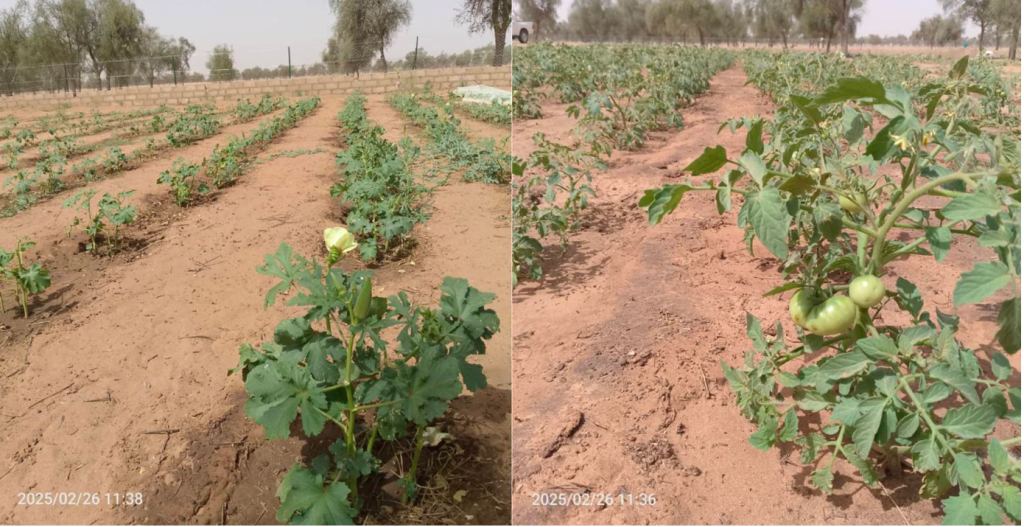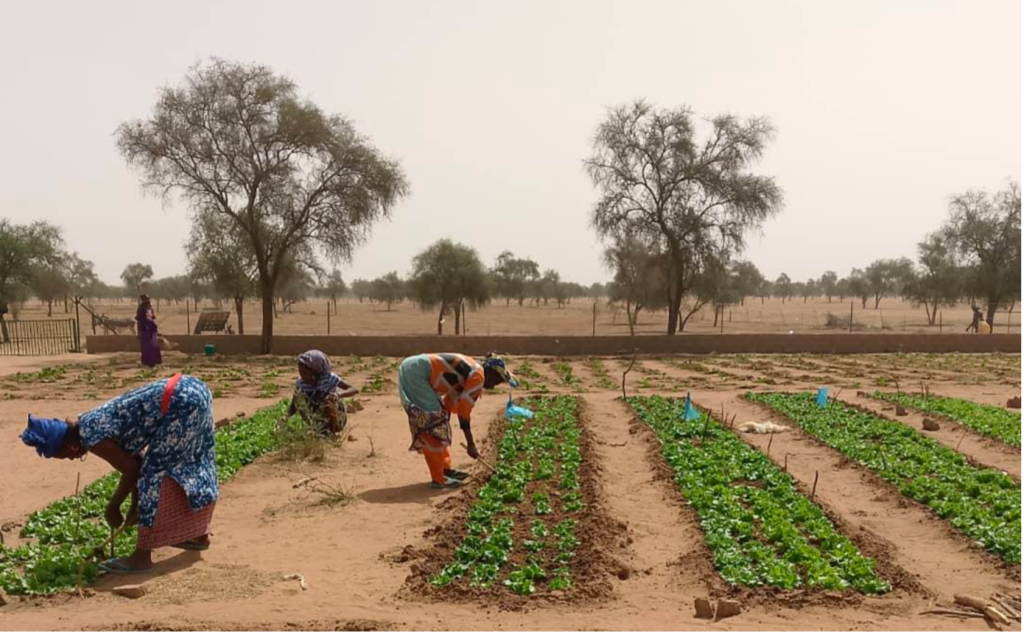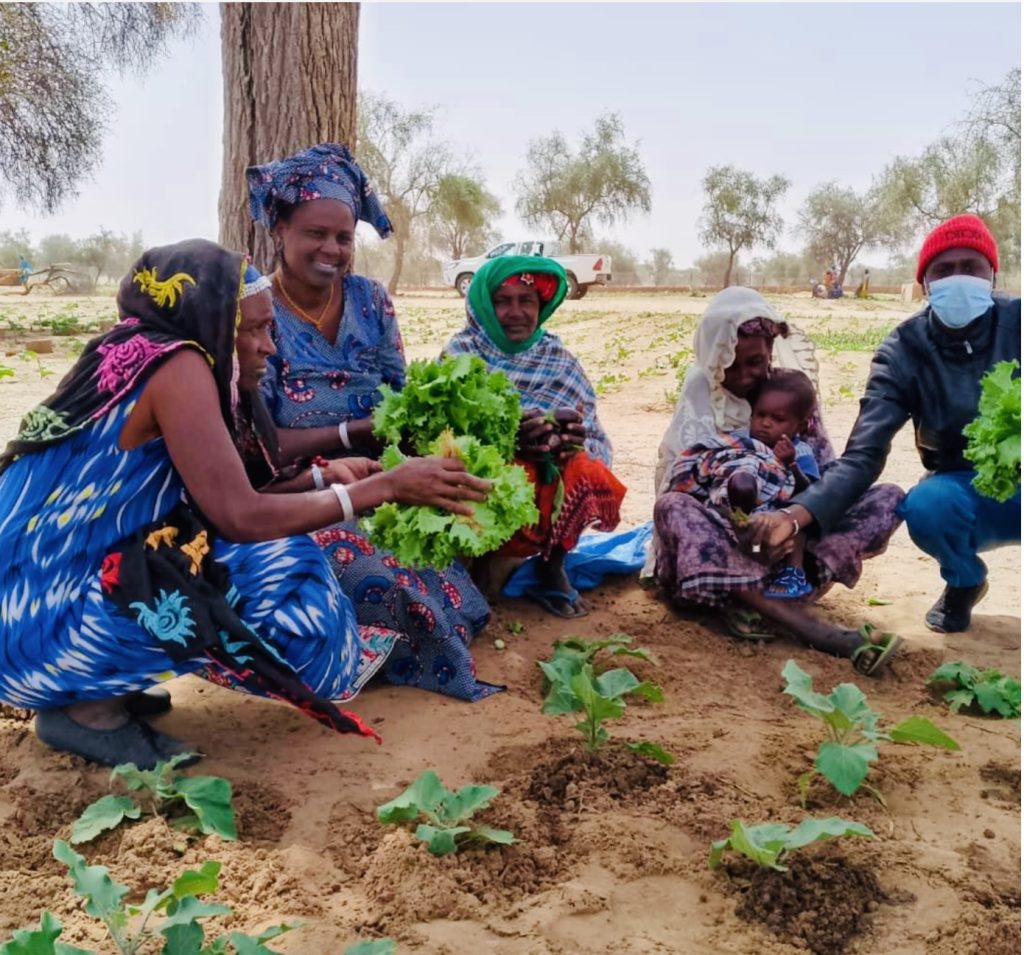How Community Gardens in Senegal Are Taking Root
In February 2025, a mission led by APAF Senegal, in collaboration with Lignaverda and Ondernemers voor Ondernemers (OvO), brought encouraging updates – and a few challenges on the development of agroforestry gardens in the villages of Kodialal and Mbar Ttoubab. These gardens are more than mere horticultural plots. They are seeds of resilience, education, and sustainability, tended primarily by women who are committed to improving food security and soil health through agroecology.
The Flemish Government granted a subsidy to Lignaverda’s capacity building project ‘Let’s make the desert Green’, which is executed in the framework of the government’s International G-STIC Climate Action Programme (FICAP) and which supports the capacity building of these women to grow and harvest fruits and vegetables from their recently reforested land
Kodialal: A Garden in Bloom
In Kodialal, the gardens are thriving. Nearly all seedlings planted during the last mission were successfully transplanted. The community has begun harvesting okra (18 kg so far!), with tomatoes, eggplants, peppers, and lettuce following in healthy succession. The irrigation and maintenance routines are in full swing, with the potential for even greater productivity, if ecological techniques continue to be applied consistently.

A key innovation has been the introduction of agroecological best practices, including:
- soil loosening (binage) to reduce evaporation,
- use of well-composted organic manure to enhance soil fertility and water retention,
- mulching to protect soil from heat and wind erosion, and
- staking (tutorage) to support tomato plants while growing and to reduce disease spread.
These methods are empowering local women with the tools to farm more effectively and sustainably, all while conserving water and nourishing the soil
Mbar Toubab: A Site with Challenges, and Hope
The situation in Mbar Toubab is more complex. Despite the dedication of the women involved, the garden has faced setbacks. Monkeys have damaged young crops and wasted water by tampering with irrigation taps. Compounding this is the difficulty of working with compacted soil and the delayed transplantation of seedlings, many of which remained in nursery beds past their ideal planting window.
Still, the community remains engaged in watering trees and has participated actively in trainings on composting and mulching, practices that could help them turn things around in the coming season. Since last week, the women have brought young dogs into the plantation to chase the monkeys. Motivation, however, is a concern. Without visible short-term success, some women are growing disheartened.

Why This Matters
These gardens represent more than agriculture, they are a living classroom for sustainable land stewardship, a platform for women’s empowerment, and a practical response to the climate challenges of the Sahel. With continued collaboration and care, what is growing today could inspire a greener tomorrow for generations.
Stay tuned for more updates from the field where seeds of change are being sown every day.





